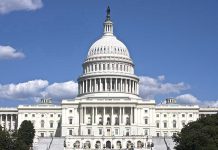
The 2020 Census errors have sparked a renewed debate over congressional representation, as errors disproportionately favored Democrat-led states, according to a CNN analyst.
Story Highlights
- 2020 Census errors disproportionately benefited blue states, affecting congressional representation.
- Significant overcounts in eight states (mostly blue) and undercounts in six (mostly red).
- Errors have become a focal point for partisan debate and legislative proposals.
- Calls for reforms, including the addition of a citizenship question in future censuses.
Error Impact on Representation
Errors in the 2020 U.S. Census have led to skewed congressional representation, particularly disadvantaging red states. With overcounts in eight states, mostly Democrat-led, and undercounts in six states, mostly Republican-led, the discrepancies have sparked concern over fairness in representation and federal funding allocations. These inaccuracies have become a focal point for debate, as they directly impact the distribution of political power and resources.
Political and Legislative Reactions
In response to the census errors, Congressional hearings have intensified scrutiny on the Census Bureau’s methodology. Lawmakers are pushing for reforms to ensure future censuses are more accurate. One proposal gaining traction is the inclusion of a citizenship question, which proponents argue would help provide a clearer picture of the population. President Trump and conservative lawmakers have been vocal in highlighting these census errors as evidence of partisan bias.
Despite the controversy, the Census Bureau has acknowledged the errors but attributes them to operational and demographic challenges, not political bias. The COVID-19 pandemic significantly disrupted data collection efforts, leading to unprecedented miscounts.
Long-term Implications and Reforms
The 2020 Census results will continue to affect congressional apportionment and federal funding until the next census in 2030. This situation underscores the need for ongoing oversight and reforms to address the flaws exposed by the 2020 exercise. The debate over census accuracy is likely to persist, with significant implications for electoral strategies and resource allocation in affected states.
The errors have heightened partisan tensions and public distrust in the census process, further complicating efforts to achieve a consensus on necessary reforms.
Sources:
Heritage Foundation: Census Bureau Admits Overcounting
Heritage Foundation: Republicans and the Bungled Census
Population Reference Bureau: 2020 Census Accuracy
Census Bureau: 2020 Census Undercount and Overcount Rates
Oversight Committee: Census Bureau Must Address Flaws


















